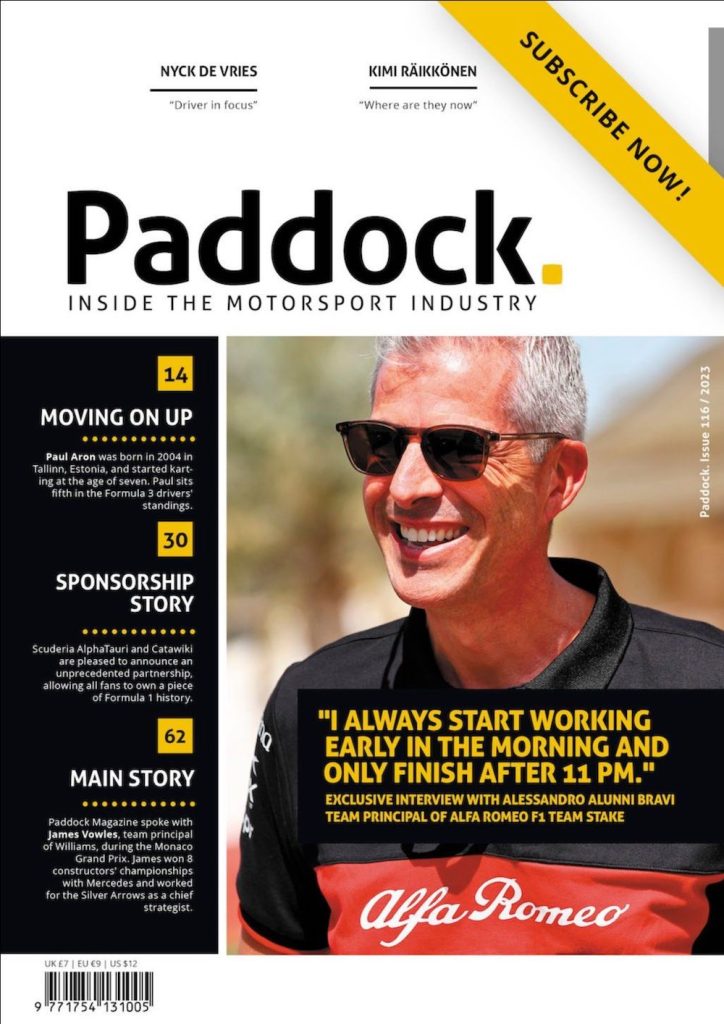By Rosa Elena Torres | Brazilian racing legend Emerson Fittipaldi has won both the Formula 1 World Championship and the Indianapolis 500 twice each. As for business, he has exercised his entrepreneurial skills since early days, through his winning career in motor racing and after retiring from driving. We at Paddock magazine decided to sit down for a chat about the current situation in Formula 1.
The 2015 Formula 1 season – as good and competitive as you hoped?
I think Formula 1 has to be more balanced in relation to the teams – there is a huge distinction between them, and on many levels. Yes, the racing is much more competitive this year than it was in the recent times, but we have to understand that if we keep the balance right, the sport will be even more amazing to watch.
In your opinion, how is Formula 1 as a business industry doing today?
I see Formula 1 as a gigantic and successful business giant, no doubts about it. However, I believe it needs to at least try to lower the costs. And I’m talking not only about the price of tickets, but about the costs to own or run a Formula 1 team. Still, the global coverage is fantastic, so we can use that to make it a business that’s beneficial or at least fun for everyone in it.
The drivers really need more freedom to talk to the press, to the people. And not talk what the sponsors want them to say.
Do you agree with people who claim that there are no interesting characters or charisma-blooded heroes in Formula 1 anymore?
Because of the pressure from the sponsors, the drivers can’t express themselves as much as they’d like to – this is a big part of the problem. In particular, the drivers really need more freedom to talk to the press, to the people. And not talk what the sponsors want them to say. That’s probably the main difference between the drivers now and the ones who were heroes in the past.
Obviously, the sport was very risky before, there were much more emotions in the air, so the drivers were all friends since every race was a fight for your life. Now the drivers don’t seem to be communicating as well as they used to be back in my day.
Despite that, I completely agree that we have big stars today. If you look at the career of Lewis Hamilton, you’ll see that he’s a superstar in England and certainly a big deal worldwide. In Mexico, for instance, Sergio Perez and Esteban Gutierrez are very famous – they are celebrities as well, and I’m sure the crowd will go absolutely crazy at the Mexican GP when Sergio goes out of the pits. There are plenty of charismatic racers today, they’re just stars in a different sense than they were in the old days.
What would you say to some experts that feel as if “it should be more about the driving and less about the cars and tyres”?
That’s completely true. Formula 1 has to change the rules for the cars to be more driver-efficient – that should help the greatest drivers on the planet to show what they can really do behind the wheel.
Do you think the sport should be more open to the crowd or keep its exclusivity?
Definitely more open to the fans. Formula is losing contact with racing admirers and, often, even the drivers. However, it’s a very complicated question, because that’s one of the things that Formula 1 has to improve, yet it’s impossible to know how to do it in the optimum way. Some things are clear already – the public has to have more interaction with the drivers, simple as that.
We as motorsport professionals need to reach new generations.
Any thoughts about the next year’s geography?
It’s very important for Mexico to have the Grand Prix again, that way we’ll have four Grands Prix in the Americas – Canada, United States, Mexico and Brazil. This whole region is a crucial destination if we want Formula 1 to develop and reach new audiences as well as powerful investors.
Also, we should keep one Grand Prix in Italy and one in Germany. So many world champions are German and their automobile industry is so strong – it would be a sin not to have a prestigious race like Formula 1 there.
Formula E was a completely new step in motorsports. What’s your take on it?
I’m glad that Formula E put on a solid show. We as motorsport professionals need to reach new generations, and Formula E is working exactly on that. I was in London, in Miami, in Beijing – the younger audiences liked the spectacle very much, they were very interested in new technologies and their application, the overall sense of innovation, shorter events and entertaining, easy to access, city-centre racing.






Related Articles